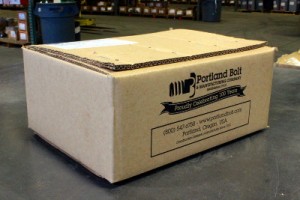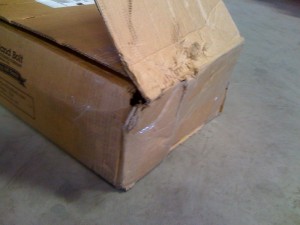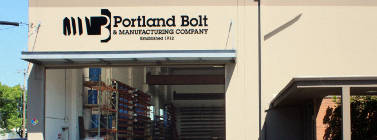What does the acronym “FOB” stand for and how does it affect your order?
According to the Incoterms 2010 standard which is published by the International Chamber of Commerce, the acronym “FOB” stands for “free on board.” In the US, this acronym “FOB” is commonly used when shipping goods to acknowledge who is responsible for the costs associated with loading, transporting and/or the point at which the ownership of the goods transfers from the shipper to the buyer. The term “FOB origin” refers to the buyer having the responsibility of the goods once they leave the origin and it also indicates that the buyer will pay the shipping costs. The term “FOB destination” indicates that the seller holds possession of the goods until they are delivered to the buyer and the seller is responsible for paying the shipping costs.

What significance does this have when orders are damaged during transit?
Though we always hope that nothing bad will ever happen to our orders, the fact remains that there will be times when packages are delivered with damage. What we refer to as “damage” is when the packaging is torn, wet or ripped and the contents of the package could have been affected in some way. This is where the importance of the acronym “FOB” comes into play. Depending on how the order is shipping directly correlates to who will be responsible for filing a claim with the shipping company to cover the losses from the damage. As earlier stated, if the order is shipped “FOB destination,” Portland Bolt owns the materials until the order is delivered to its destination. In that case, it would be Portland Bolt’s responsibility to file a claim with the shipping company for the damaged or lost parts. However, if the order is shipping “FOB origin,” the ownership of the material transfers to the customer as soon as the order leaves our loading dock. In this second scenario, the customer would be responsible for filing a claim with the shipping company for the damaged or lost items.
Portland Bolt includes the information below via email to every customer once their order ships explaining what to do if an order is delivered with damage.
Damaged or Lost Freight Procedures

Portland Bolt has invested in some of the best packaging materials and partners with the most competent freight carriers to ensure the best delivery possible. Unfortunately, freight can still become damaged or lost in transit. To ensure a safe arrival, we ask that you follow this simple process while our product is being delivered:
- Before you sign the carrier’s delivery receipt, please thoroughly inspect the shipment for any signs of damage.
- Note any signs of damage on the delivery receipt before you sign it.
- Take photographs of the damaged pallets and/or boxes. Smart phones work great for this purpose.
Please contact us if damage has occurred or product has been lost so we can begin the process of replacing it immediately. However, in order to file a claim against the carrier, you must follow these procedures when the shipment is received. Please refer to our website for more information on Damaged or Lost Freight Procedures.
Though damage is sometimes inevitable, Portland Bolt uses some of the best packaging materials and safe freight carrier partners to ensure the best possible delivery, whether that’s right down the street or across the world. No matter the size or weight of the order, Portland Bolt will make sure each part is protected and sealed before shipment. If you have a need for nonstandard anchor bolts and construction fasteners, give Portland Bolt a call – we will make sure your order is made and packaged correctly and shipped out on time.

